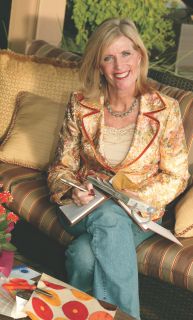This made me realize the struggle we all are going thru to survive. What will a mother do to save her child? In this movie she gave him away so that he could LIVE. He BECAME against all odds a surgeon and eventually went back and saw his birth mother as a field doctor.
The relationship he had being raised Jewish and not understanding who he was. This became a constant inner conflict. Who am I? Why am a different than everyone who is "white"? He still had human emotions. He wanted to LOVE . He was unsure how to LIVE. He released his pain by praying every night, by looking at the moon and somehow connecting with the soul of his distant mother. Tragedy produces all types of defense mechanisms for survival.
We have to stay connected with the warm felt memories from lost love. We are all looking for a semblance of love. We all have a desire to know G-d. We look to Him in our greatest need.
He expressed his pain so beautifully by saying it was as though he had been taken away and lost or stolen and dropped into a large thorn bush. The stickers could not be removed the harder he tried the worse it got. The pain was particularly cruel underneath his fingernails. He could not remove the “STICKERS”. Is not this the way broken dreams of the heart from lost love and earthly relationships affect us?. We cannot see the “stickers” that are underneath our skin. The Hurt is unbearable.
Pain only goes away when we can release and love again. He had a new baby to encourage and show love. His heart must be stretched to reach beyond its limits. The family he was forming needed emotional stability. The future of his family depended on his emotional strength, not merely his surgical skills.
His history remembers pain, the isolation from his mother in Ethiopia, without food and water, seeing death at every turn. He witnessed his own siblings dying before his eyes and somehow feeling responsible for their death.
He Lived to become a lover. He is a champion of triumphing over adversity and conquering pain thru continuing to live and LOVE again.
As we are remembering the history of the Holocaust today on January 27 it is a good time to look at love and hold dearly those things that are close. We learn how people survive tragedy and those who helped become heroes.
Conflict, like in the movie, produces new bonds where love can become evident.
The pastor at Le Chambon, André Trocmé(pictured left with his family) challenged his small flock with this very issue of who was their neighbour.
We must look for stories that portray how people care and love to rescue the perishing. We can look for opportunities to help heal “hurts” when we read stories that inspire us to greatness. This is one such story written below about a town in France. I particularly loved it because my grandmother came from Marseilles France. We connect our heart to others in the hope that we will respond with such great LOVE.
As Holocaust Day, January 27, is noted, an historian says: "A small community of Protestant Christians, descendants of Huguenots, were faced with a choice that would challenge the very essence of their faith. Would they live what they preached or would they put their own safety first?"
 (France)—Somehow, stories of faith and heroism resonating from WWII continue to inspire us. Perhaps it is because we are still connected to the war by parents and grandparents who fought in it. Perhaps it is because in our times of tribulations there are more lessons to be learned from those who encountered similar trials before us.
(France)—Somehow, stories of faith and heroism resonating from WWII continue to inspire us. Perhaps it is because we are still connected to the war by parents and grandparents who fought in it. Perhaps it is because in our times of tribulations there are more lessons to be learned from those who encountered similar trials before us.
Case in point: Le Chambon sur Lignon, a small village in south central France set on a plateau high in the mountains. It is where, according to reporter Russel Bowles, one of the most remarkable expressions of love of the whole war occurred when the Christian inhabitants defied the Nazi occupation and provided a safe haven for thousands of Jewish people—many of them children. No Jew that requested shelter was turned away.
As reported in Inspire Magazine, it was the pastor at Le Chambon, André Trocmé, who challenged his small flock with the question of who their neighbors were in the Biblical context. Soon, the small flock—risking their lives to do so—began taking in Jews.
According to the report, eventually the pastor and his assistant Edouard Théis were arrested. "However, amazingly, they were released before they were due to be deported to the east. The Gestapo also arrested the Pastor's cousin, Daniel Trocmé, and he died in Majdanek extermination camp."
"Bad as these events were," writes Bowles, "it seemed that the Almighty had His hand of protection on the village, for in all about 5,000 Jews were sheltered when the Nazis were leaving no stone unturned elsewhere in their pursuit."




